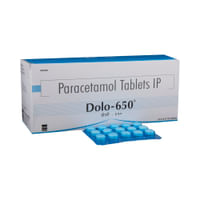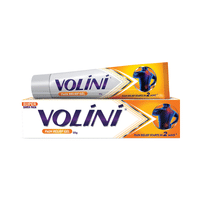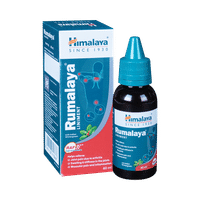RID PLUS 50 MG/100 MG TABLET

food interaction for Rid Plus
alcohol interaction for Rid Plus
pregnancy interaction for Rid Plus
lactation interaction for Rid Plus
food
alcohol
pregnancy
lactation
RID PLUS 50 MG/100 MG TABLET is to be taken with food.
This will help to avoid acidity and heartburn.
None
This will help to avoid acidity and heartburn.
None
CAUTION
It is unsafe to consume alcohol with RID PLUS 50 MG/100 MG TABLET.
UNSAFE
Information regarding the use of RID PLUS 50 MG/100 MG TABLET during pregnancy is not available. Please consult your doctor.
CONSULT YOUR DOCTOR
Information regarding the use of RID PLUS 50 MG/100 MG TABLET during breastfeeding is not available. Please consult your doctor.
CONSULT YOUR DOCTOR
SALT INFORMATION FOR Rid Plus
Diclofenac(50mg)
Uses
Diclofenac is used for pain relief. It relieves pain in conditions like headache, mild migraine, muscle pain, dental pain, rheumatoid arthritis, ankylosing spondylitis, osteoarthritis, or painful menses.
How it works
Diclofenac is a non-steroidal anti-inflammatory drugs (NSAID). It works by blocking the release of certain chemical messengers that cause pain and inflammation (redness and swelling).
Common side effects
Nausea, Headache, Dizziness, Vomiting, Flatulence, Constipation, Diarrhea, Abdominal pain, Dyspepsia, Gastrointestinal bleeding, Gastrointestinal ulcer, Rash, Application site irritation, Injection site pain, Chest pain, Hypersensitivity, Angioneurotic edema, Platelet disorders, Convulsion, Visual disturbance, Ringing in ear, Colitis, Stevens-Johnson syndrome, Myocardial infarction
Nimesulide(100mg)
Uses
Nimesulide is used for fever and pain relief.
How it works
Nimesulide is a non-steroidal anti-inflammatory drugs (NSAID). It works by blocking the release of certain chemical messengers that cause pain and inflammation (redness and swelling).
Common side effects
Nausea, Itching, Diarrhea, Flatulence, Dizziness, High blood pressure, Anemia (low number of red blood cells), Hypersensitivity, Breathlessness, Vomiting, Gastrointestinal bleeding, Gastrointestinal ulcer, Skin eruptions, Fulminant hepatitis (viral infection of liver), Low blood platelets, Stevens-Johnson syndrome, Renal failure, Increased liver enzymes
SUBSTITUTES FOR Rid Plus
3 Substitutes
3 Substitutes
Sorted By
 Rs. 15.11save 86% more per Tablet
Rs. 15.11save 86% more per Tablet Rs. 24.25save 78% more per Tablet
Rs. 24.25save 78% more per Tablet Rs. 25.90save 76% more per Tablet
Rs. 25.90save 76% more per Tablet
Expert advice FOR Rid Plus
- You have been prescribed Diclofenac to relieve pain and inflammation.
- Take it with food or milk to prevent upset stomach.
- Take it as per the dose and duration prescribed by your doctor. Long term use may lead to serious complications such as stomach bleeding and kidney problems.
- It may cause dizziness, drowsiness or visual disturbances. Use caution while driving or doing anything that requires concentration.
- Avoid consuming alcohol while taking Diclofenac as it can cause excessive drowsiness and increase your risk of stomach problems.
- Inform your doctor if you have a history of heart disease or stroke.
- Your doctor may regularly monitor your kidney function, liver function and levels of blood components, if you are taking this medicine for long-term treatment.
Frequently asked questions FOR Rid Plus
Diclofenac
Q. Is Diclofenac a good painkiller?
Diclofenac is effective in relieving pain and inflammation. It is used for various sorts of pain such as sprains, strains and other injuries. It is also helpful in various types of arthritis, gout, pain and inflammation following surgery.
Q. Is Diclofenac a narcotic?
No, Diclofenac is not a narcotic. It belongs to non-steroidal anti-inflammatory drugs (NSAIDs) group of medicines.
Q. Does Diclofenac get you high?
No, Diclofenac does not get you high. It does not have an abuse potential (drug-seeking behavior) and does not cause physical or psychological dependence. However, if you do not feel well, consult your doctor.
Nimesulide
Q. Is Nimesulide an antibiotic?
Nimesulide is not an antibiotic, it belongs to the class of medicines known as non-steroidal anti-inflammatory drug (NSAIDs; pain-relieving drug) which helps in relieving pain associated with various disease conditions.
Q. Can I take Nimesulide with paracetamol?
Nimesulide and paracetamol belong to the same class of medicines known as non-steroidal anti-inflammatory drugs (NSAIDs; pain-relieving drugs). Taking the two medicines together is not advisable as it may increase the potential for gastric ulceration and bleeding. However, please consult your doctor before using the two medicines together.
Q. Does Nimesulide contain aspirin?
Nimesulide is a non-steroidal anti-inflammatory drug (NSAIDs; pain-relieving drug). It does not contain aspirin.






















